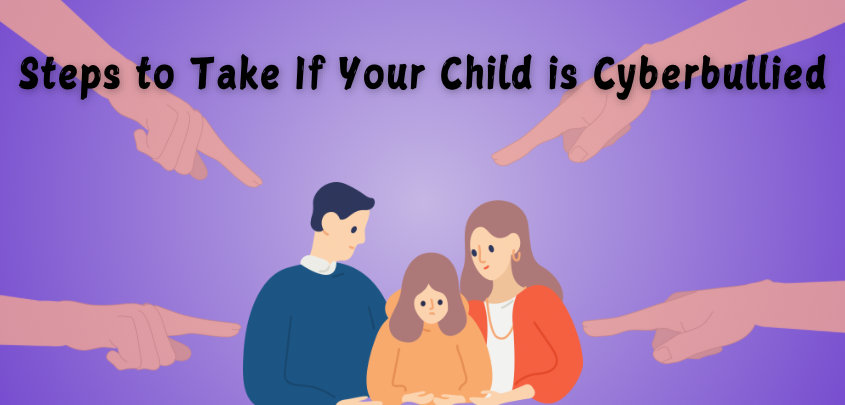
10, Jul, 2024
Steps to Take If Your Child is Cyberbullied: Immediate Actions and Long-Term Support
In an era where digital connectivity dominates our lives, cyberbullying has emerged as a pervasive issue, affecting children and adolescents worldwide. Unlike traditional bullying, cyberbullying can occur at any time and place, making it a relentless threat to a child’s well-being. As a parent, knowing how to respond when your child is cyberbullied is crucial. This guide outlines the immediate actions to take when your child faces online harassment and the long-term support strategies to help them recover and build resilience. By being proactive and informed, you can protect your child and foster a safer online environment for them.
Immediate Action
- Stay Calm and Listen-When your child reports cyberbullying, remain calm. Reacting with anger or panic can increase their distress. Listen attentively to understand the full scope of the issue.
- Document Everything-Encourage your child to save all evidence of cyberbullying, including messages, screenshots, and emails. This documentation will be crucial if you need to report the incident.
- Assess the Severity-Assess the seriousness of the bullying. Is it a one-time occurrence or ongoing and threatening? This assessment will determine your next actions.
- Report to the Platform-Most social media platforms have mechanisms for reporting abusive behavior. Guide your child through the process of reporting the cyberbully and blocking them on all relevant platforms.
- Inform the School-Notify the school if the cyberbullying involves classmates.Schools typically possess policies and resources to tackle online bullying, guaranteeing a safe setting for students.
Long-Term Support
- Foster Open Communication-Encourage open communication with your child regarding their online activities. Regularly discuss their experiences and emotions to stay informed.
- Educate About Online Safety-Teach your child about online safety, including the importance of privacy settings and being cautious about sharing personal information.
- Build Self-Esteem-Boost your child’s self-esteem by fostering resilience and confidence through positive reinforcement and engaging activities aligned with their passions and interests.
- Seek Professional Help-If the cyberbullying has a significant impact on your child’s mental health, consider seeking help from a counselor or psychologist.Seeking professional assistance can offer coping mechanisms and emotional guidance.
- Encourage the Adoption of Stronger Anti-Bullying Policies: Get involved in your child’s school or community to support stronger anti-bullying policies and programs. Community involvement plays a crucial role in preventing and addressing cyberbullying effectively.
Responding to cyberbullying requires immediate action to protect your child and long-term support for their healing and growth. Stay composed, document incidents, and foster open communication to provide necessary assistance during these challenges.It’s essential to empower your child with knowledge and confidence to effectively defend against cyberbullying.
